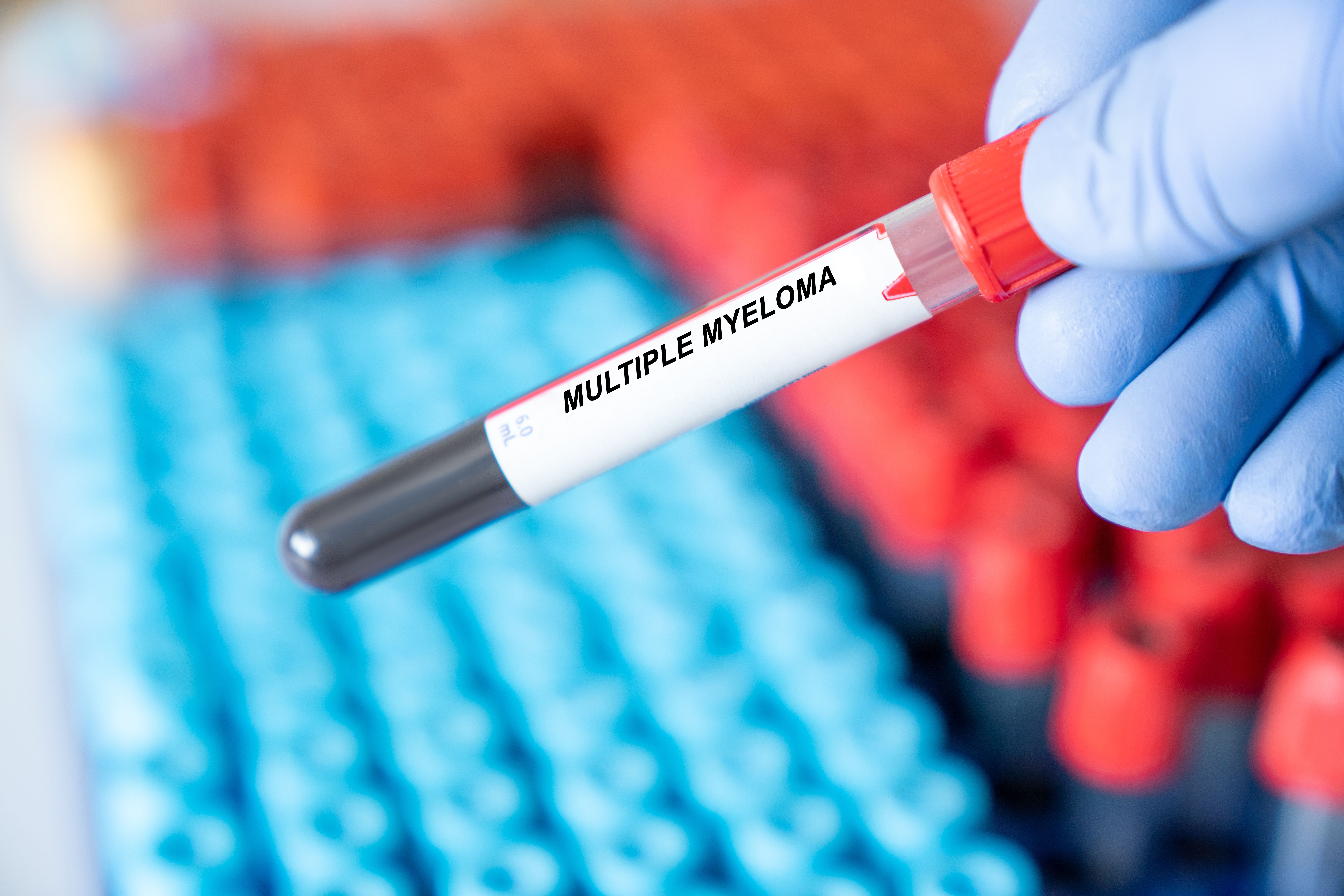News
Article
Intravenous Immunoglobulin Reduces Risk of Severe Infection When Used with BCMA Bispecific Antibody for Multiple Myeloma
Author(s):
Intravenous immunoglobulin could potentially be given throughout the duration of anti-BCMA bispecific antibody therapy for the treatment of multiple myeloma.
Intravenous immunoglobulin (IVIG) has been found to reduce the risk of severe infection in patients with multiple myeloma who are undergoing treatment with an anti-B-cell maturation antigen (BCMA) bispecific antibody, according to a study published in Blood Cancer Discovery.1 A statement from the American Association for Cancer Research notes that bispecific antibodies targeting BCMA proteins are increasing in use for the treatment of multiple myeloma, including the recent FDA approval of elranatamab-bcmm (Elrexfio, Pfizer Inc).1,2
luchschenF - stock.adobe.com

Although these antibodies have considerable efficacy, especially for heavily pretreated multiple myeloma, there have been high rates of serious infections for the individuals receiving this therapy, according to Guido Lancman, MD, a clinical associate at the Princess Margret Cancer Centre of the University Health Network at the University of Toronto and an author of the study.1
“Since antibodies are key components of the immune response, the inability to make antibodies leaves patients vulnerable to all sorts of viral and bacterial infections,” Lancman said in a statement. “As more and more patients start receiving BCMA-targeted bispecific antibodies, it is critical that physicians become aware of this toxicity and learn how to manage it.”1
The study authors aimed to determine whether supplementing antibodies with IVIG could help reduce the risk of infection. They included 37 individuals who were heavily pretreated with an anti-BMCA bispecific antibody for multiple myeloma. All individuals included were enrolled at the Mount Sinai Hospital between 2019 and 2022, according to the statement.1
There were 26 individuals who experienced a clinical response to an anti-BCMA bispecific antibody. All individuals had severe hypogammaglobulinemia, which was defined as immunoglobulin G levels below 200 mg/dL.1
According to the investigators, approximately 92% received IVIG at some point during treatment. There was a total combined follow up time of 424 months in which patients experienced 118 total infections, including 26 severe infections at grades 3 through 5 among 15 individuals.1
The study authors reported that the rate of severe infection was 90% lower when patients were receiving IVIG therapy compared to when they were not receiving it. They reported that there were no other significant risk factors for infection during the study period.1
“This study demonstrates that IVIG is associated with a substantially reduced risk of serious infections in patients receiving anti-BCMA bispecific antibodies,” Lancman said in the statement. “Given the very high rates of serious infections and deaths in patients receiving these treatments, this study supports a proactive rather than a reactive approach, meaning initiation of IVIG prophylaxis from the beginning rather than waiting for patients to experience complications.”1
Lancman added that because the antibodies do not recover while on treatment or on periods off-treatment for up to 13 months, IVIG might need to be given throughout the duration of the anti-BCMA bispecific antibody therapy, and possibly during time after treatment.1 Alternative strategies need to be considered if anti-BCMA therapies begin to be used earlier as treatment, according to Lancman. He noted that it would not be feasible to maintain every individual with multiple myeloma on IVIG indefinitely.1
Limitations included the small sample size of the study and the non-randomized use of IVIG therapy, according to the statement.1
References
- Intravenous immunoglobulin may prevent severe infections associated with anti-BCMA therapy for multiple myeloma. News release. American Association for Cancer Research. September 28, 2023. Accessed September 28, 2023. Email.
- FDA grants accelerated approval to elranatamab-bcmm for multiple myeloma. News release. FDA. August 14, 2023. Accessed September 28, 2023. https://www.fda.gov/drugs/resources-information-approved-drugs/fda-grants-accelerated-approval-elranatamab-bcmm-multiple-myeloma
Newsletter
Stay informed on drug updates, treatment guidelines, and pharmacy practice trends—subscribe to Pharmacy Times for weekly clinical insights.






